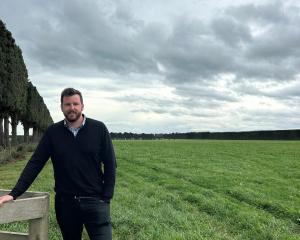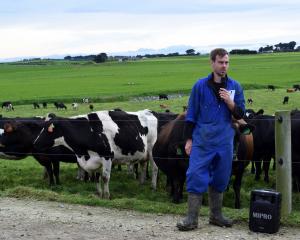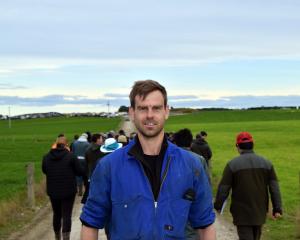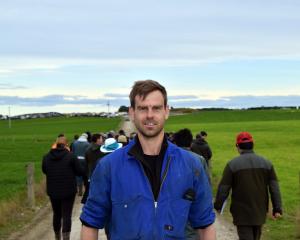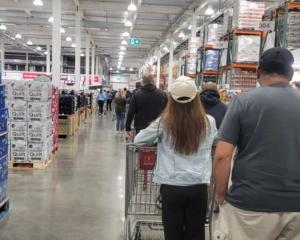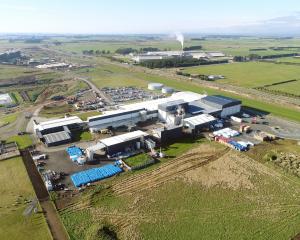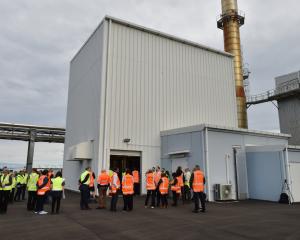
Q What is DairyNZ particularly proud of?
2017/18 has been a big and productive year for DairyNZ, and we are proud of the work our farmers have been doing to look after their cows and continually reduce dairying's environmental footprint.
Everything DairyNZ does is designed to support our farmers.
I believe the dairy sector is vital to this country and makes a huge contribution to New Zealanders' standard of living.
Throughout the year, DairyNZ has represented our levy payers in everything from research and innovation, farm practice advice and environmental change, through to policy and sector events.
Dairy Tomorrow
Key among the achievements that DairyNZ has been involved in was the launch in November 2017 of the new joint venture dairy sector strategy Dairy Tomorrow.
Dairy Tomorrow is the plan that will take New Zealand dairy in to the future, as a high-performing, sustainable and responsible sector.
Dairy Tomorrow has six commitments to achieve in the coming decade, including to protect and nurture the environment for future generations; to build the world's most competitive and resilient dairy farm businesses; to produce the highest quality and most valued dairy nutrition; and to be world-leading in on-farm animal care.
Mycoplasma bovis response
DairyNZ has committed significant resources to the fight to eradicate M. bovis - including 40 DairyNZ staff who are dedicated to working on the issue, a liaison with the Ministry for Primary Industries, significant farmer support and expert technical advice, and communications with media and stakeholders.
We expect M. bovis to remain a significant focus in the next year too.
Research highs
During the past year we have continued programmes of research that will deliver invaluable information, innovation and on-farm tools for dairy farmers.
DairyNZ is part of the Forages for Reduced Nitrate Leaching (FRNL) research project,
which looks into how feeding diverse pasture species and crops can reduce nitrate leaching. Another levy-funded DairyNZ project, Leap21, got under way last season and explores future dairy systems.
Q What do you think DairyNZ can do better?
DairyNZ is always reviewing what we do and how we can improve the way we work and deliver for our farmers and New Zealand.
We regularly liaise with our farmers to get their feedback on what we can do better.
Q What do you see as the biggest challenge for DairyNZ?
The dairy sector is working to reduce dairying's environmental footprint.
That is why a huge amount of focus and resources are going into this.
As a farming community, we are committed to farming within environmental limits and maximising value from our pasture-based farming systems.
Most dairy farmers are committed to doing their bit to achieve this vision, which is why they have been working hard during the past 20 years to achieve environmental goals.
Of significant waterways on dairy farms, 97% (over 26,000km) are now fenced off to keep cows out, and 99.7% of regular stock crossings now have bridges or culverts to protect water quality.
The vision is clear
We know that New Zealanders highly value waterways and want clean streams, lakes and rivers to swim, play and fish in.
That is why we have launched a multimedia campaign (November 1) ' ' The vision is clear'', outlining the sector's commitment to improving our waterways and inviting all New Zealanders to come on the journey.
Q What do you see as biggest benefits?
DairyNZ sees ongoing improvement in water quality as one of the biggest benefits the dairy sector can achieve, working together with other sectors and all New Zealanders.
We also see the benefits that will flow from the new dairy sector strategy Dairy Tomorrow as being hugely important.
The six commitments and 22 goals in the strategy collectively add up to the specific areas we want to make progress on, in order to be trusted and valued, productive and competitive.
Q Do you think you will meet your target of 80% of New Zealanders agreeing that dairy farmers are good stewards of the environment, that 100% of farmers are compliant with good practice welfare guidelines and standards and that 90% of dairy businesses have quality work environments, by 2020?
The targets are there for a reason and we absolutely want to achieve them and we are working hard to achieve them.
Under the Dairy Tomorrow strategy, we are looking at new steps we need to take to continue the strategy's upwards trajectory in these areas.




